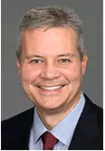A New York federal district court excluded plaintiff's expert's opinions and granted summary judgment for the airline in De Larancuente v. American Airlines, Inc., 2022 U.S. Dist. LEXIS 110580 (E.D.N.Y. June 22, 2022). While deplaning, the plaintiff tripped on one of two floor-mounted fuselage hooks that were mounted just outside the door frame of the Boeing 737-800. Although she had not requested a wheelchair or assistance from any flight attendant, nor was she otherwise infirm, plaintiff claimed the airline negligently breached its duty to “monitor and assist passengers” exiting the aircraft.
Plaintiff proffered an expert report from a licensed professional engineer and home inspector, Harold Krongelb, who opined that potentially hazardous doors and walkways should be supervised constantly, it is reasonably foreseeable that a passenger who feels alone on an aircraft will seek to exit the same, it is reasonably foreseeable that a passenger who attempts to exit a Boeing 737 without assistance will trip, and a passenger cannot exit a Boeing 737 safely without assistance. The putative expert did not examine the subject aircraft, has no professional experience with aircraft, and neither undertook nor reviewed any relevant studies. Instead, his opinions were based solely upon a telephone call with plaintiff's counsel and a single photograph of the interior of a Boeing 737 passenger exit – with the cabin door closed.
Federal Rule of Evidence 702 sets forth the standards for admissibility of expert opinions in civil actions where, as in the instant matter, subject matter jurisdiction is based upon the parties' diversity of citizenship. Among other things, Rule 702 requires an expert to be qualified by “knowledge, skill, experience, training, or education,” and the opinion to be based upon sufficient facts or data, and reliable application of scientific principles and methods to the facts of the case. The court ruled that Mr. Krongelb was “unqualified to testify as an expert in this matter,” and even if he was qualified, his opinions were “wholly unsupported by data, methodology, or studies.”
Having no admissible expert testimony on the duty of care, plaintiff could not make out a case against the airline. The only record evidence on the subject was deposition testimony from a flight attendant, who stated it was her duty “to monitor the door and monitor passengers leaving,” but actually standing at or in the doorway would “interfere” with that duty. Accordingly, the court granted summary judgment in the airline's favor.
De Larancuente v. Am. Airlines, Inc., 2022 U.S. Dist. LEXIS 110580 (E.D.N.Y. June 22, 2022).
The content of this article is intended to provide a general guide to the subject matter. Specialist advice should be sought about your specific circumstances.
